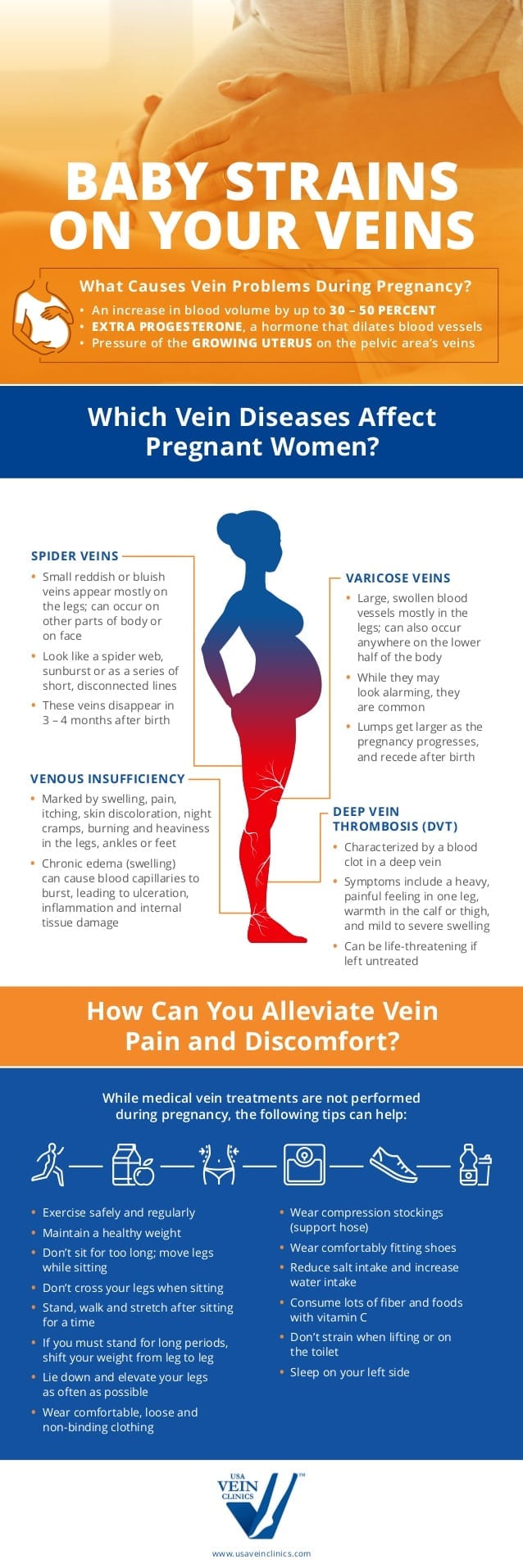Pregnancy brings a number of changes within the body—some expected and some unexpected. Among these changes are increased blood volume, which can lead to spider veins, varicose veins, and other vein diseases.
While vein diseases are not exclusive to pregnant women, the unique physiological changes associated with pregnancy may result in these vascular complications or worsen existing ones. In order to support the uterus during pregnancy, a woman’s blood volume may increase by up to 50% so that oxygen and proper nutrients are delivered to the fetus. Caused by an increase in both blood plasma and the number of red blood cells, this increase in blood volume puts pressure on the veins, which can lead to visibly enlarged veins—usually in the legs—more commonly referred to as varicose veins. These bulging, sometimes discolored veins are just one of the signs of an underlying issue known as venous insufficiency, or vein disease. Vein disease can also cause painful symptoms such as swelling, restlessness, cramping, and even fatigue in the lower legs.
Thankfully, there are ways to safely and naturally prevent or minimize these conditions while pregnant, as well as alleviate pain and discomfort. From implementing changes in your diet and exercise to simply modifying the way you sit, read the accompanying infographic to learn how to manage the symptoms of vein disease caused by pregnancy. In addition, it’s important to consult a vascular specialist if you’re experiencing discomfort even after pregnancy. They can help determine whether or not lifestyle changes may be enough or if getting your veins treated could have a more lasting effect.
Author bio: Dr. Yan Katsnelson is the founder of USA Vein Clinics, the largest national network of vein clinics committed to improving lives through minimally invasive treatments of venous insufficiency. USA Vein Clinics specializes in the treatment of varicose veins and spider veins through endovenous laser treatment (EVLT), ClariVein, Varithena vein treatment, ultrasound-guided sclerotherapy, and sclerotherapy injections.












